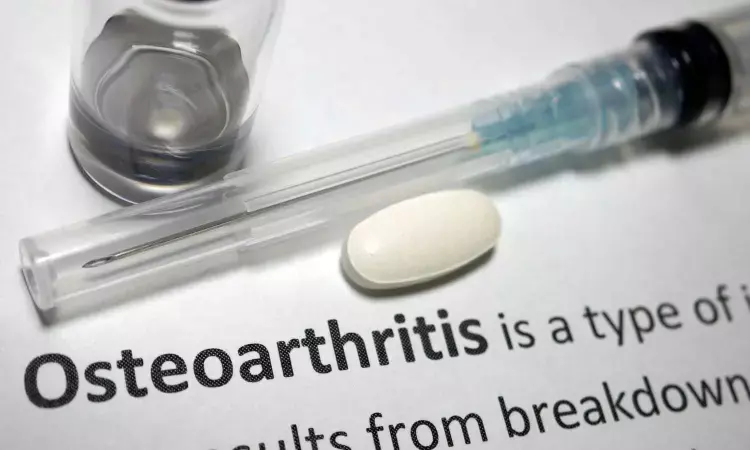- Home
- Medical news & Guidelines
- Anesthesiology
- Cardiology and CTVS
- Critical Care
- Dentistry
- Dermatology
- Diabetes and Endocrinology
- ENT
- Gastroenterology
- Medicine
- Nephrology
- Neurology
- Obstretics-Gynaecology
- Oncology
- Ophthalmology
- Orthopaedics
- Pediatrics-Neonatology
- Psychiatry
- Pulmonology
- Radiology
- Surgery
- Urology
- Laboratory Medicine
- Diet
- Nursing
- Paramedical
- Physiotherapy
- Health news
- Fact Check
- Bone Health Fact Check
- Brain Health Fact Check
- Cancer Related Fact Check
- Child Care Fact Check
- Dental and oral health fact check
- Diabetes and metabolic health fact check
- Diet and Nutrition Fact Check
- Eye and ENT Care Fact Check
- Fitness fact check
- Gut health fact check
- Heart health fact check
- Kidney health fact check
- Medical education fact check
- Men's health fact check
- Respiratory fact check
- Skin and hair care fact check
- Vaccine and Immunization fact check
- Women's health fact check
- AYUSH
- State News
- Andaman and Nicobar Islands
- Andhra Pradesh
- Arunachal Pradesh
- Assam
- Bihar
- Chandigarh
- Chattisgarh
- Dadra and Nagar Haveli
- Daman and Diu
- Delhi
- Goa
- Gujarat
- Haryana
- Himachal Pradesh
- Jammu & Kashmir
- Jharkhand
- Karnataka
- Kerala
- Ladakh
- Lakshadweep
- Madhya Pradesh
- Maharashtra
- Manipur
- Meghalaya
- Mizoram
- Nagaland
- Odisha
- Puducherry
- Punjab
- Rajasthan
- Sikkim
- Tamil Nadu
- Telangana
- Tripura
- Uttar Pradesh
- Uttrakhand
- West Bengal
- Medical Education
- Industry
Weight loss with anti-obesity medications improve survival in people with knee or hip osteoarthritis: Study

China: A population-based study revealed that the slow-to-moderate, but not fast, rate of weight loss induced by antiobesity medications is linked with lower all-cause mortality in patients with obesity or overweight and knee or hip osteoarthritis (OA). The findings were published online in Arthritis & Rheumatology on December 6, 2023.
"For people overweight or with obesity who also have knee or hip osteoarthritis, a slow-to-moderate-but not fast-rate of weight loss caused by anti-obesity medications may lower their risk of premature death," the researchers wrote.
The current guidelines recommend weight loss for overweight/obese patients with knee or hip osteoarthritis; however, there is a lack of data on the relation of weight loss to death among patients with OA. Chao Zeng, Central South University, Changsha, China, and colleagues aimed to examine the relation of the rate of weight loss induced by antiobesity medications over one year to all-cause mortality among patients with overweight or obesity and knee or hip OA.
For this purpose, the researchers identified people with obesity or overweight and hip or knee OA using the IQVIA Medical Research Database. They emulated analyses of a hypothetical target trial to evaluate the effect of slow-to-moderate (2%–10%) or fast (≥10%) weight loss induced by the initiation of antiobesity medications within one year on all-cause mortality and secondary outcomes over a follow-up of five years.
Among 6,524 participants with knee or hip osteoarthritis who were taking orlistat, sibutramine, or rimonabant, the 5-year death rate was 5.3%, 4.0%, and 5.4% for the “weight gain/stable”, “slow-to-moderate weight loss,” and “fast weight loss” groups, respectively. Compared with the “weight gain/stable” group,” the risk of death was 28% lower for the “slow-to-moderate weight loss” group and only 1% lower for the “fast weight loss” arm.
"A slow-to-moderate rate of weight loss induced by anti-obesity medications may lower the risk of death in overweight/obese people with knee/hip osteoarthritis", said first author Jie Wei, PhD, of Xiangya Hospital, Central South University, in China.
Reference:
Jie Wei, David Hunter, Nancy E. Lane, Jing Wu, Chao Zeng, Guanghua Lei, Yuqing Zhang, Weight Loss Induced by Antiobesity Medications and All-Cause Mortality Among Patients With Knee or Hip Osteoarthritis,https://doi.org/10.1002/art.42754.
Dr Kamal Kant Kohli-MBBS, DTCD- a chest specialist with more than 30 years of practice and a flair for writing clinical articles, Dr Kamal Kant Kohli joined Medical Dialogues as a Chief Editor of Medical News. Besides writing articles, as an editor, he proofreads and verifies all the medical content published on Medical Dialogues including those coming from journals, studies,medical conferences,guidelines etc. Email: drkohli@medicaldialogues.in. Contact no. 011-43720751


